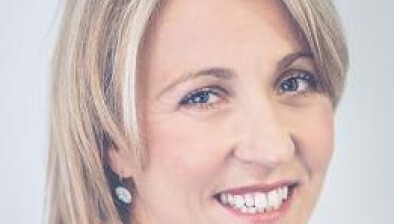NI: Olivia O’Kane – Why do journalists protect the identity of their sources?

Olivia O'Kane
Olivia O’Kane explains why journalists must be able to protect the identities of their sources
In recent years, through confidential sources journalists have exposed many scandals such as the MPs expenses, the phone hacking, financial and banking impropriety, mistreatment of elderly or vulnerable patients, sex abuse, data surveillance, tax evasion and so much more.
If any of these sources didn’t trust a journalist to protect their identity many of these scandals would not have been exposed and wrongdoing would continue undetected.
Investigative journalists rely heavily on their ability to attract and retain the trust of their sources. This trust is what enables the source to disclose information that could potentially be of huge public interest and if not disclosed could result in serious wrongdoing going undetected. It is the veil of anonymity for the source that will inevitably encourage them to disclose serious wrongdoing. Sources are usually those who have witnessed something, have evidence of something bad or of some cover up of a crime. If a source cannot trust a journalist a source will not make disclosures for fear of their life or fear of losing a job for example.
The protection of sources’ identity to allow serious wrongdoing to be exposed leads to healthy democracies, it allows for the free flow of accurate and truthful information which those in power or positions of authority or those engaging in serious criminality would prefer to remain secret.
In the UK no court can compel any journalist to disclose a source unless there is an exceptional reason to do so such as prevention of a crime or in the interests of national security or justice. The European Court of Human Rights has said that the protection of journalistic sources is one of the basic conditions for press freedom and without such protection there would be a chilling effect on sources coming forward which would deter sources from assisting the press in informing the public on matters of public interest.
There are strong public policy reasons as to why journalists should rarely be compelled to disclose their material unless a judicial authority has analysed the facts which deem it necessary in law that disclosure overrides any other legal reason to keep it confidential. Inevitably, these scenarios will be extremely rare but the role of the judicial finger in balancing these scales of justice is crucial. A court can ensure that all other reasonable, less invasive, alternative measures are explored first. This safeguard means that any attempt to override a journalist’s confidential privilege is kept to an absolute minimum and only when it is overwhelmingly justified in law.
The risks to journalists cannot be understated. In recent years, two journalists have been murdered in Northern Ireland, Lyra McKee and Martin O’Hagan, many others have received numerous death threats or even been shot at as a result of their reporting. In Ireland, journalists have also received death threats and in 1996 Veronica Guerin was murdered. In 2017 Daphne Caruana Galizia was murdered in Malta believed to be connected to her reporting on matters of alleged corruption. Whereas Mexico has been described as the deadliest country for reporters outside of a war zone, connected to their reporting about alleged corruption and serious criminality.
Legal challenges to reveal journalistic source material does occur in Northern Ireland. In March 2018 an award winning Sunday World crime reporter was subjected to various applications which tried to compel her to reveal her sources that led to her publishing various reports about alleged dissident republican terrorism offences. In August 2018 two local journalists and filmmakers had their homes raided and part of the material seized from their homes and offices related to journalistic material which could have potentially revealed journalistic confidential source information. In June 2009 a crime reporter for the Sunday Tribune had been asked to hand over confidential journalistic material to police which included a mobile telephone, computer records and notes on a dissident republican terrorist group.
Despite the seriousness of these challenges, and the potential risks involved to the journalists if they were compelled to disclose source information, in all of the cases above the Belfast Courts upheld the public policy and legal framework to protect confidential journalistic material.
Both the Press Council of Ireland and IPSOs Code of Practice for journalists expressly recognise the importance of confidential journalistic material. The National Union of Journalists’ code also says: “A journalist shall protect confidential sources of information.” All of these ethical codes require a journalist safeguard their moral obligation to protect the confidentiality of their sources, and many journalists do so at risk to their lives or even risk of imprisonment. But “whistle-blowers” or other informants disclosing information also face risks to their lives or some other physical, economic or professional consequence.
There are legitimate reasons as to why there is a strong presumption in favour of protecting journalists’ sources’. Disclosure of confidential source material should only ever be a last resort and only when it is proved to a judge that it is necessary for an overriding legitimate reason. Protecting the confidentiality of journalistic material is not merely because they are a journalist, but because the journalism contributes to debates or discussions on matters of serious public interest and which ultimately may bring about positive change in our society.
A free press take on a crucial role in our society to act as bloodhound and watchdog on behalf of the public. Accurate information predominantly reaches the public through the media. As a society we must continue to understand the important role that the media contribute to keeping our democracy healthy and holding those guilty of wrongdoing to account.

Olivia O’Kane is a partner and Head of Media & Entertainments in Carson McDowell LLP. She regularly acts for journalists, newspapers, broadcasters and film makers. This article first appeared in the Belfast Telegraph.








